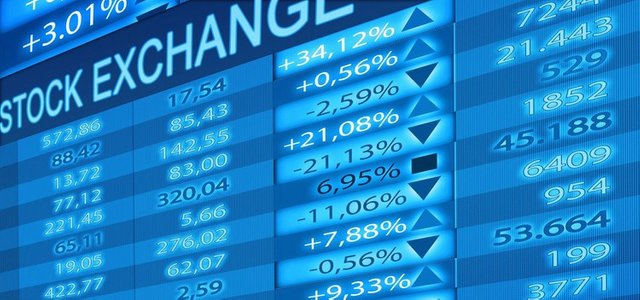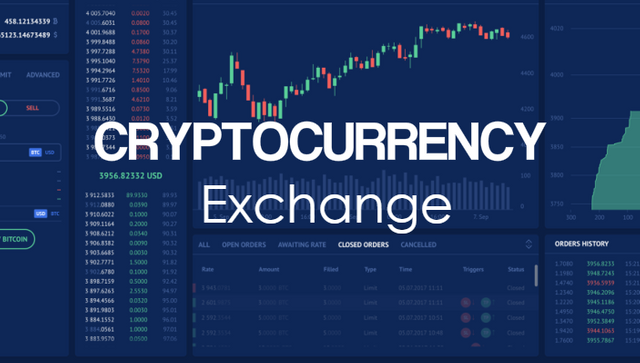What are the Differences between Crypto Exchanges and Stock Exchanges
Traditional Exchanges:
A marketplace wherein securities, commodities, derivatives and other economic contraptions are traded. it is able to be a physical place in which traders meet and behavior business (e.g., big apple inventory exchange (NYSE)) or an electronic platform (e.g., Nasdaq). As markets end up greater sophisticated, trading is increasingly performed on digital exchanges. Even at NYSE, maximum of the buying and selling nowadays is performed electronically (over 85% as of 2016).

The center characteristic of an exchange is to ensure fair and orderly buying and selling and the green dissemination of price records for any safety trading on that alternate.
A inventory change facilitates current and newly-formed agencies boost capital, for constructing and increasing their agencies through promoting shares to the making an investment public. the primary sale of a inventory with the aid of a personal organization to the public is called an preliminary Public imparting (IPO). A corporation ought to within the destiny enhance extra capital through a inventory trade thru a seasoned fairness supplying (search engine optimization).
Crypto Exchanges:
A enterprise that lets in customers to exchange cryptocurrencies or digital currencies for different belongings, together with traditional fiat money, or different virtual currencies. it may be a market maker that takes the bid/ask spreads as transaction commissions for its offerings or one that definitely fees fees as a matching platform.

plainly both conventional exchanges and crypto exchanges offer a platform for investors to buy and sell securities, commodities or every other belongings. So, how are they distinct?
Differences between Crypto Exchanges and conventional Exchanges :
A company can improve funds from the public on a traditional alternate through an IPO. before doing so, however, it ought to first undergo a rigorous procedure of compliance and due diligence.
Step 1:
The business enterprise have to follow certain policies and a due diligence method performed by using the regulator along with the SEC or its equivalent in another country, (inclusive of the economic conduct Authority (FCA) within the united kingdom).
on the give up of the due diligence method, the SEC approves the business enterprise’s prospectus. A prospectus is a disclosure document that describes the monetary security for ability customers. It normally offers investors with material records about the funding, which include an outline of the business enterprise's commercial enterprise, economic statements, biographies of officials and directors, unique statistics about their compensation, any litigation that is taking vicinity, a listing of cloth houses, partnerships and other engagements, and some other material records that the SEC deems as cloth (that is unique to each company). In essence, the idea behind the very last prospectus is to give all of the statistics a prospective investor might need which will make an informed selection approximately whether or not to invest.
Step 2:
A corporation can apply to check in on one of the inventory exchanges.
before a company can begin trading on an alternate, it have to meet positive initial necessities or "list standards." The various exchanges set their very own standards for listing and persevering with to trade a stock. The SEC does now not set list requirements.
To be indexed to begin with, a organisation should meet minimum economic and non-economic requirements. amongst different matters, the standards cover general market cost, inventory price, and the variety of publicly traded stocks and shareholders a organisation has. After a corporation's stock begins buying and selling on an change, it typically is subject to different, less stringent necessities. If it fails to meet those, the stock can be delisted. As with listing necessities, the standards for delisting shares are not uniform. every trade has its own requirements.
Step 3:
as soon as a organization gets the approval of both the SEC and a stock trade, it can set a fee (for its inventory) and a date (for the IPO) and start trading on a inventory change from that day on. the first trading day is the IPO date.
An ICO, then again, isn't required to undergo the rigorous compliance and due diligence procedure as described above. it's far carried out independently of an alternate and is administered by using the issuer (i.e., a corporation issuing its tokens in place of an alternate).
An ICO does have a white paper, which offers a few facts about the product/carrier, the group, the token structure, the chance elements, and some other information that the employer deems fabric. An ICO white paper, however, should no longer be harassed with an IPO prospectus. unlike an IPO prospectus, which goes through an SEC approval system, an ICO white paper is produced at the employer’s discretion.
After a business enterprise raises funds through an ICO, there is no guarantee that its tokens sold might be indexed on a crypto change.
therefore, one of the principal functions of a conventional trade – facilitating fund-elevating – is removed from the enterprise operations of a crypto trade.
policies and Protections of buyers/investors
conventional exchanges are exceptionally regulated (specially inside the US) a good way to ensure truthful and orderly buying and selling, transparency and green dissemination of data.
The regulations are implemented to each events concerned – exchanges list the securities on their platform, and agencies listed on the exchanges.
on the employer’s facet
Regulators require that:
(1) traders get hold of all important facts to make an knowledgeable selection on their investments.
Public businesses are required to post quarterly economic statements – groups do not most effective offer information on past and modern operating overall performance but also provide guidance on future performance.
Public groups are required to right now announce and report about any new cloth engagement (e.g., merger and acquisitions, filling for financial ruin, lawsuit.)
(2) corporations dispose of facts asymmetry with the aid of supplying the identical records to all investors.
groups are required to carry out quarterly income’ conferences calls, which have to be open to the public.
Insider buying and selling is against the law, and crook penalties are implemented in such a case.
at the exchanges’ side
Regulators require that:
Exchanges provide fairness in price execution and market efficiency.
The countrywide marketplace gadget (NMS) (and the european equal Markets in economic units Directive (MiFID)) is a fixed of policies, which pursuits to improve the U.S. exchanges thru stepped forward equity in price execution as well as enhance the displaying of fees and get admission to to market records.
This regulatory ruling is produced from 4 important components:
The Order safety Rule pursuits to make certain that buyers get hold of the fine price when their order is executed through getting rid of the capability to have orders traded via (carried out at a worse charge).
The get right of entry to Rule, ambitions to enhance get entry to to quotations from buying and selling centers in the national marketplace system by means of requiring greater linking and lower get entry to costs.
The Sub-Penny Rule, which sets the lower quotation increment of all shares over $1.00 according to share to at the least $0.01.
marketplace statistics guidelines, which allocate sales to self-regulatory corporations that promote and improve market statistics get right of entry to.
Crypto exchanges are neither concern to any guidelines nor are they required to offer equity in charge execution and marketplace performance.
There are approximately 26 traditional exchanges. however, despite the fact that the fairness market is fragmented, the SEC requires via The Order safety Rule that at any point in time, there could be best one best Bid provide (BBO) aggregating all of the transactions on all exchanges. This ensures that investors obtain the exceptional charge whilst their order is finished.
There are loads of crypto exchanges (and the wide variety will increase each day), however all of them perform independently. there's nobody charge rule (as described above) to combination them. as a result, a crypto trader does now not always realize whether he/she receives the best charge in the aggregated marketplace (i.e., all crypto exchanges).
on the grounds that crypto exchanges are not regulated, it also method that organizations listed on those exchanges are not regulated. unlike public organizations indexed on a stock trade, groups listed on a crypto alternate aren't required to put up financial statements or expose any information. once more, like within the case of an ICO, it's miles at a enterprise’s discretion whether or no longer to disclose.
Congratulations @aviralpathak! You have completed the following achievement on Steemit and have been rewarded with new badge(s) :
Click on the badge to view your Board of Honor.
If you no longer want to receive notifications, reply to this comment with the word
STOPTo support your work, I also upvoted your post!
Do not miss the last post from @steemitboard:
SteemitBoard and the Veterans on Steemit - The First Community Badge.
Nice info
Thnx brother
great differentiate between Crypto Exchanges and Stock Exchanges.. very nicely explain..
thnx brother
Wow it's very informative, you done really good research bro
Posted using Partiko Android
thnx brother
Nice post great work brother
Posted using Partiko Android
thnx brother
Nice post bro. Very useful information about crypto lovers. Keep posting such informative posts
thnx brother
Informative post
Valuble information
Posted using Partiko Android